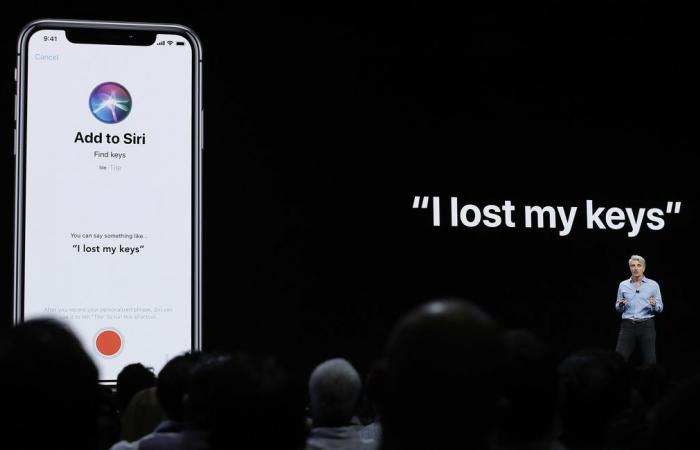Apple agreed to pay $95 million for lawsuit over Siri eavesdroppingNewslooksWashington DCMary SidiqiEvening EditionApple agreed to pay $95 million for lawsuit accusing it of using its assistant virtual Siri to spy on users. The lawsuit, which lasted five years, alleged that Siri secretly recorded conversations without activation and shared them with advertisers. Apple denies any wrongdoing but agreed to compensate affected users who owned Siri-enabled devices from 2014 to 2023. The settlement is awaiting approval by a federal judge.
Apple Siri Lawsuit Settlement: Quick Overview
- Settlement amount:Apple agrees to pay $95 million to settle complaints about unauthorized Siri recordings.
- Allegations:Siri reportedly recorded conversations without user activation and shared them with advertisers.
- Eligibility:Consumers with Siri-enabled devices between September 17, 2014 and December 31, 2023 can file claims.
- Compensation:Eligible users could receive up to $20 per device, limited to five devices.
- Legal context:The settlement avoids a potential liability of $1.5 billion if the privacy violations had gone to trial.
Deep look
Apple has agreed to pay $95 million to settle a five-year-old lawsuit that claimed its virtual assistant Siri violated users’ privacy by secretly recording conversations without their consent. The proposed settlement, filed Tuesday in federal court in Oakland, California, marks the culmination of a legal battle that challenges Apple’s long-standing commitment to consumer privacy.
These accusations have called into question Apple’s image as a company that prioritizes privacy, a philosophy championed by CEO Tim Cook, who has repeatedly described privacy as a ” fundamental human right”. Although Apple did not admit wrongdoing in the settlement, the case highlights growing concerns about the tech giants’ data practices and the balance between innovation and user rights.
Allegations against Siri
The complaint accuses Apple of using Siri, its popular virtual assistant, to secretly record private conversations via devices like iPhones, iPads and Macs. The plaintiffs claim that Siri sometimes activates without the required trigger phrase, “Hey, Siri,” and captures conversations unintentionally.
According to the complaint, these recordings were shared with advertisers, allowing them to better target consumers with personalized products and services. This practice, if proven, would contradict Apple’s public stance on privacy and its assurances that Siri is designed to respect user privacy.
The alleged breaches spanned more than a decade, affecting millions of Apple users who relied on the company’s devices for personal and professional communications.
Regulation details
The $95 million settlement aims to compensate consumers who owned Siri-enabled devices between September 17, 2014 and December 31, 2023. Eligible users could receive up to $20 per device, capped at five devices per person.
However, the final compensation amount may vary depending on the number of claims filed. Historically, only 3-5% of eligible consumers file claims in similar class action settlements. This low participation rate means that users who file a claim may receive compensation slightly higher than the estimated $20 per device.
Avoiding a Potential $1.5 Billion Liability
Apple’s decision to settle helps avoid a potentially costly litigation. If the case had gone to court and Apple had been found liable for violations of wiretapping and privacy laws, the damages would have been could reach around 1.5 billion dollars.
The $95 million settlement represents only a fraction of Apple’s financial resources. Since 2014, the company has generated approximately $705 billion in profits, making the cost of settlement negligible in comparison. However, the lawsuit posed a significant reputational risk because it directly challenged Apple’s privacy-focused brand strategy.
By settling the case without admitting wrongdoing, Apple mitigates legal risks while continuing to promote its commitment to user privacy.
Legal Fees and Next Steps
The proposed settlement includes provisions for legal fees and expenses. Lawyers representing the plaintiffs indicated they could seek up to $29.6 million from the settlement fund.
-Before consumers can file a claim, the settlement must be approved by U.S. District Judge Jeffrey White. A hearing is scheduled for February 14, 2024 in Oakland, California. If the settlement is approved, eligible users will be notified of the claims process, allowing them to receive compensation.
Apple’s commitment to privacy comes under scrutiny
Apple has long positioned itself as a leader in protecting user privacy, often contrasting its practices with those of competitors like Google and Amazon. The company highlights features like built-in data processing for Siri and other services designed to minimize data collection.
The accusations in this case, however, call into question Apple’s systematic respect of its confidentiality commitments. Critics argue that the lawsuit reveals vulnerabilities in Apple’s practices, even though the company remains a staunch defender of privacy rights.
Apple’s decision to settle out of court rather than contest the allegations in court highlights the challenges of maintaining consumer trust in a rapidly changing technology landscape.
Wider implications for virtual assistants
The lawsuit against Siri is part of a broader conversation about privacy issues surrounding virtual assistants. Devices like Siri, Amazon Alexa and Google Assistant are increasingly integrated into daily life, raising questions about how these technologies handle user data.
Several controversies have surfaced in recent years regarding unauthorized recordings by virtual assistants, leading to calls for stricter regulation and greater transparency in data practices. This case highlights the need for businesses to balance innovation, ethical responsibilities and strong privacy protections.
Impact on the consumer
For millions of Apple users, the deal represents an opportunity to hold the company accountable for alleged privacy violations. However, the relatively modest compensation of $20 per device may seem symbolic rather than substantial to many consumers.
This case also serves as a reminder for users to stay informed about the data practices of the technologies they use every day. Understanding how virtual assistants work and what permissions they need can help mitigate potential privacy risks.
To go further
The $95 million settlement highlights the complexity of managing privacy issues in a technology-driven world. While the financial impact on Apple is minimal, the case raises important questions about how even the most privacy-conscious companies manage user data.
As virtual assistants become more and more ubiquitous, the need for transparency, accountability, and strict data protections will only increase. For Apple, the agreement marks the end of a difficult legal chapter while reaffirming the importance of maintaining consumer trust in its privacy mission.
More information on American news






